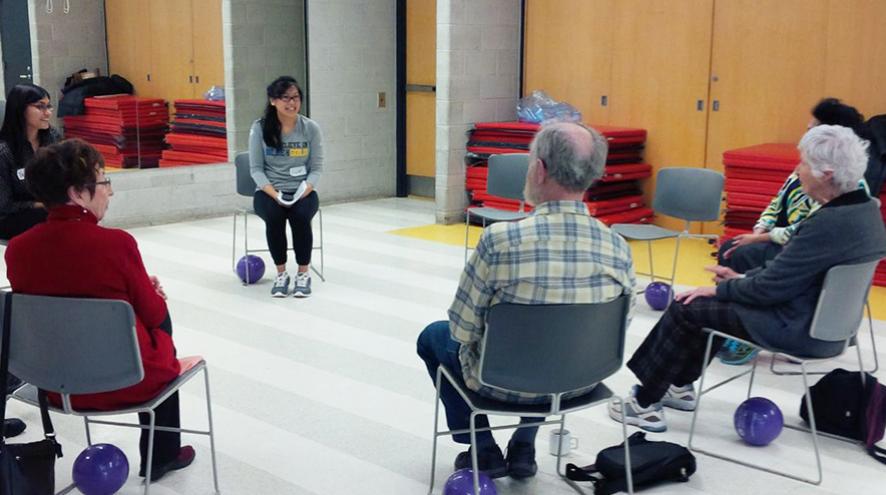Minds in Motion®
Minds in Motion® is a community-based social program that incorporates physical activity and mental stimulation. It's for people with early to mid-stage signs of Alzheimer’s disease or other dementias and their care partners.

Contact Kristy Giles at 866-576-8556 or email [email protected].
What is Minds in Motion®?
Combining physical activity and mental stimulation, Minds in Motion® unfolds to laughter and chatter, with new friendships forming and stories being shared.
Here's what our participants get from Minds in Motion®:
"I enjoyed participating in both the physical exercise and the social activities. It was wonderful meeting and getting to know all the participants. A great group! Overall, a great program. We both love coming. Leaders are excellent - always empathetic and great teachers.” –Care Partner
“The people involved are most helpful. Pleasant and understanding- it’s been a very worthwhile course.” - Person with Dementia
Who Are Minds in Motion® Participants?
- Minds in Motion participants have early to mid-stage signs of dementia and are accompanied by their care partners.
- In some circumstances individuals register on their own, please connect with your local Alzheimer Society for more information on this option.
- A maximum of 11 couples, or 22 participants, enrolled in each eight-week program.
- Each pair pays a minimal registration fee (fees may vary by community).
- The 2-hour program runs once a week, for 8 weeks, in a community-based program centre.
The Minds in Motion® benefits
For the person with dementia:
- Improved balance, mobility, flexibility, and alertness,
- Increased confidence, and comfort with their own circumstance,
- Mutual support from others facing similar experiences.
For the care partners, it’s an opportunity to focus on their own health, and have fun with their partner.
Care partner benefits include:
- Seeing the person they are caring for enjoying themselves.
- Mutual support and learning from other care partners.
All participants can benefit from:
- Sharpened mental functioning, sometimes lasting 2-3 days.
- Increased sense of social participation.
Here's the Pilot Findings:
- Participants’ endurance improved by 20% and strength by 15%.
- Participants reported decreased social isolation and an increase in informal networks of support.
- 79% of participants continue with physical and social programs after participating.
- Close to 100 volunteers and students have been trained and are active in program delivery.
- 90% of staff, volunteers and students identified an increase in their dementia knowledge.
